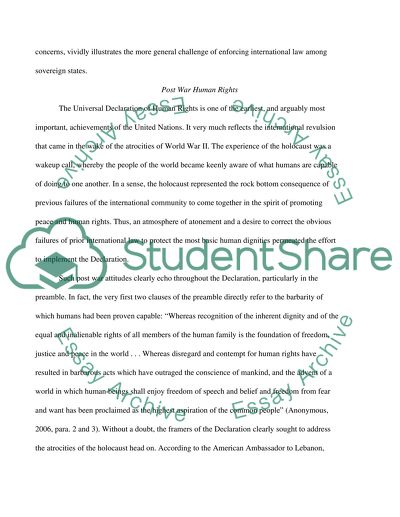Cite this document
(The Importance and Limitations of the Universal Declaration of Human Rights Essay Example | Topics and Well Written Essays - 1500 words, n.d.)
The Importance and Limitations of the Universal Declaration of Human Rights Essay Example | Topics and Well Written Essays - 1500 words. https://studentshare.org/law/1501431-the-importance-and-limitations-of-the-universal-declaration-of-human-rights
The Importance and Limitations of the Universal Declaration of Human Rights Essay Example | Topics and Well Written Essays - 1500 words. https://studentshare.org/law/1501431-the-importance-and-limitations-of-the-universal-declaration-of-human-rights
(The Importance and Limitations of the Universal Declaration of Human Rights Essay Example | Topics and Well Written Essays - 1500 Words)
The Importance and Limitations of the Universal Declaration of Human Rights Essay Example | Topics and Well Written Essays - 1500 Words. https://studentshare.org/law/1501431-the-importance-and-limitations-of-the-universal-declaration-of-human-rights.
The Importance and Limitations of the Universal Declaration of Human Rights Essay Example | Topics and Well Written Essays - 1500 Words. https://studentshare.org/law/1501431-the-importance-and-limitations-of-the-universal-declaration-of-human-rights.
“The Importance and Limitations of the Universal Declaration of Human Rights Essay Example | Topics and Well Written Essays - 1500 Words”. https://studentshare.org/law/1501431-the-importance-and-limitations-of-the-universal-declaration-of-human-rights.


